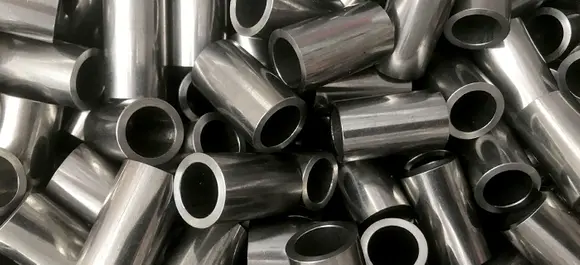Mobile:+86-311-808-126-83
Email:info@ydcastings.com
Mass Flow Meter for Impeller Turbine Applications in Fluid Measurement Systems
Impeller Turbine Mass Flow Meter An Overview
Mass flow measurement is a critical component in various industrial applications, particularly in the fields of chemical processing, water treatment, and oil and gas industries. Among the many technologies available for measuring mass flow rate, the impeller turbine mass flow meter stands out due to its reliability, accuracy, and ease of use. This article delves into the workings, advantages, and applications of the impeller turbine mass flow meter.
Working Principle
The impeller turbine mass flow meter operates on a straightforward principle. It consists of a turbine wheel that is placed in the flow path of the fluid being measured. As fluid flows through the meter, it propels the turbine wheel to rotate. The rotational speed of the wheel is directly proportional to the velocity of the fluid passing through it. This relationship allows for precise measurements of flow rate.
The meter typically converts the rotational speed of the turbine into an electrical signal, which can then be processed to calculate the mass flow rate. The most common approach is to use Hall-effect sensors or similar technologies to detect the speed of the turbine. With the proper calibration and compensation for fluid density, these meters can provide accurate mass flow readings.
Advantages of Impeller Turbine Mass Flow Meters
1. Accuracy Impeller turbine meters offer a high degree of accuracy, often within ±0.5% of reading, making them suitable for critical applications where precise measurements are required.
2. Wide Range of Applications These meters can be used for various fluids, including water, chemicals, oils, and even some slurries, making them versatile in their application.
impeller turbine mass flow meter

3. Low Maintenance With few moving parts and a simple design, impeller turbine mass flow meters generally require minimal maintenance, leading to lower operational costs over time.
4. Cost-Effectiveness Compared to other flow measurement devices, such as Coriolis meters and electromagnetic flow meters, impeller turbine meters tend to be more affordable, especially for less complex applications.
5. Compact Design Their small size makes them ideal for installations with limited space, allowing for easier integration into existing systems.
Limitations
Despite their advantages, impeller turbine mass flow meters have some limitations. They are generally not suitable for viscous fluids, as higher viscosity can cause inaccurate measurements due to drag on the turbine. Additionally, these meters may struggle with pulsating flow or applications requiring extreme precision, where newer technologies might perform better.
Applications
Impeller turbine mass flow meters find applications in a variety of sectors. In the chemical industry, they are used for monitoring the flow of reactants and products, ensuring efficient process control. In water treatment facilities, these meters help manage the flow of treated and untreated water, contributing to overall system efficiency. The petroleum industry also utilizes impeller turbine meters for measuring fuel and crude oil flow rates, enabling better inventory and process management.
In conclusion, the impeller turbine mass flow meter is a reliable and cost-effective solution for mass flow measurement in various applications. Its simplicity and accuracy make it a popular choice among engineers and operators looking for effective flow measurement solutions. As industries continue to evolve, understanding the strengths and limitations of such measurement devices will be critical in maintaining operational efficiency and accuracy in fluid management.
-
Why Should You Invest in Superior Pump Castings for Your Equipment?NewsJun.09,2025
-
Unlock Performance Potential with Stainless Impellers and Aluminum End CapsNewsJun.09,2025
-
Revolutionize Your Machinery with Superior Cast Iron and Aluminum ComponentsNewsJun.09,2025
-
Revolutionize Fluid Dynamics with Premium Pump ComponentsNewsJun.09,2025
-
Optimizing Industrial Systems with Essential Valve ComponentsNewsJun.09,2025
-
Elevate Grid Efficiency with High-Precision Power CastingsNewsJun.09,2025











